Video from Phakchok Rinpoche
https://www.youtube.com/watch?v=9qhl8FGBAwQ
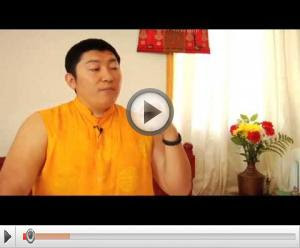
| Phakchok Rinpoche message on Guru Rinpocheday 8th June 2014 |
|
|
|
|
|
Guru Rinpoche Day, 8th June 2014
|
|
|
|
|
|
|
|
|
|
|
|
|

Dear Friends Near and Far,
These days we often mistake what it’s meant to be a dharma practitioner. The heart of the buddhadharma is to tame one’s own mind, so a dharma practitioner is someone who is able to do this, who can see their own faults, address them, and tame and transform their minds. Someone who is unable to do this is not a dharma practitioner. Secondly, a dharma practitioner should be sincere and honest. So if you wish to practice the buddhadharma authentically this you need these qualities.
In terms of our motivation for practice, we need to have compassion and our compassion should have four qualities.
To generate compassion means to see sentient beings’ suffering and the causes of their suffering and to wish to free them from it. You also need to be able to see your own suffering and its causes, to see and experience this directly for yourself. If you can, it will not be difficult to generate compassion for others. Likewise, if you can understand that you have been connected to all sentient beings from beginningless time until now as parents and children that will make generating compassion easier, and will also help you to have more equanimity.
You need to contemplate compassion in this way and when you see someone else suffering put yourself in their shoes and try to imagine what it would be like to be going through what they are going through. If you can put yourself in their position and really understand their suffering, you’ll develop some compassion. Having developed this initial compassion then you need to improve it. Don’t leave compassion as a mere thought; apply it in your behaviour and actions. When you do this you will be able to see whether your compassion is genuine or not, whether it is pure, strong, and constant or not. This is the first quality our compassion should have: application.
Since compassion is the wish to free oneself and others from suffering and its causes the second quality our compassion needs to have is dignity. Dignity here means you see and acknowledge your suffering and the suffering of others, and you have the confidence that you can dispel it and its causes, that you have the means and methods to do that. Where does this dignity arise from? It arises from genuine practice of the dharma. It is through practice that you will develop this confidence that you can bring about change. And therefore, someone who has this dignity is a practitioner. Someone who lacks this dignity, who lacks the confidence that they can change, is not a practitioner.
The third quality is aspiration, the sincere and heart-felt aspiration to benefit other beings. We need to have this genuine aspiration and wish.
But it’s not enough to leave it there, as an aspiration. To make our compassion pure, we need wisdom, prajna.
So to reiterate, whatever we do we should do it with compassion – we need to apply compassion in all of our actions. Secondly, our compassion needs to be accompanied by dignity, a confidence that we can change. Thirdly we need aspiration and fourthly wisdom. If our compassion has these four qualities, it will be pure, genuine, and strong.
Since, as you all know, we need to develop this kind of genuine compassion then while thinking of you all on this Guru Rinpoche Day I am sharing these few points on compassion with you. But in addition to generating compassion ourselves we also need to teach our family and friends about compassion, to talk about it calmly and nicely with them while continuing to practice it ourselves.
With constant aspirations for you all,
Sarva mangalam,
Phakchok Rinpoche
 
www.phakchokrinpoche.org / www.cglf.org |
|
|
|
|
|
“How Dharma can help in daily life”
Lama Rinchen Dharma talk on Thursday 24th April 2014
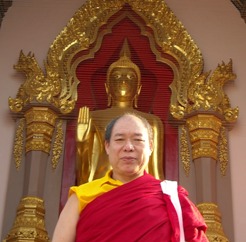
Lama Rinchen will be giving Dharma teaching on “How Dharma can help in daily life”
Venue: DMG book company, 22nd floor Amarin plaza Bangkok, BTS station Chitlom
Time: 6:30pm-8:30pm
About Lama Rinchen: The Venerable Lama Rinchen Phuntsok is a skillful teacher with a light and joyful manner. He is a scholar and meditation master of the Tibetan Buddhist Tradition. Born in Tibet, Lama Rinchen began receiving instruction in the traditions of Tibetan Buddhism at the age of six in Tsasum Chokhorling Monastery in Tibet. After he left Tibet in 1958, he studied at Young Lama’s Home School in Dalhousie, The Buddhist Monastic School in Rewalsar, Nyingmapa Lama’s College in Dehra-Dun, and Zongdog Palri Monastery in Kalimpong. Lama Rinchen graduated from Sanskrit University in Varanasi India where he completed advanced studies in Sutrayana Buddhist philosophy and scriptures, commentaries, logic, literature, history, and the major sciences of the Tibetan curriculum. For more information please check http://dongakcholing.org/LamaRinchen.html
Kindly help forward to message to those who might be interested as well.
The event is free of charge and suitable for everyone. : -)
Contact: 0818216196
ขอเชิญร่วมฟังธรรม จากพระลามะรินเชน
วันพฤหัสที่ 24 เมษายน 2557 ที่ DMG ชั้น 22 ตึกอมรินทร์พลาซ่า เวลา 18:30-20:30 น
หัวข้อบรรยาย “ธรรมะในชีวิตประจำวัน”
สอบถามข้อมูลเพิ่มเติมได้ที่ 0894817754
กรุณาช่วยส่งต่อให้ผู้อื่นที่สนใจด้วย
ขอบพระคุณ

|
|
|
|
Guru Rinpoche Day, 9th April 2014
|
|
|
|
|
|
|
|
|
|
|
Four Points to Apply to Your Life
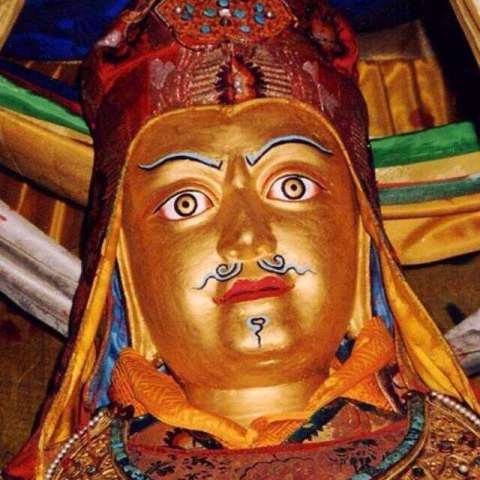 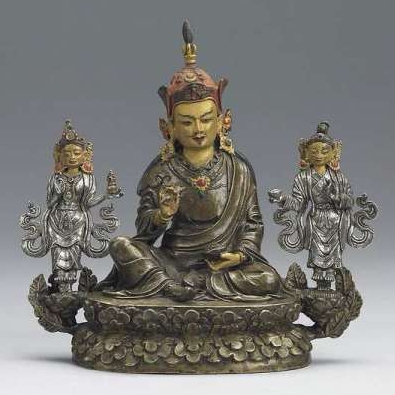
Dear Friends Near and Far,
I hope this finds you all well and happy. I recently finished two months of retreat and have been keeping you all in mind and heart.
At the moment at our monastery in Kathmandu, Nepal, Tsikey Chokling Rinpoche and Chokyi Nyima Rinpoche are presiding over the annual Ngakso (Ocean of Amrita) puja which runs twenty-four hours a day for nine days dedicated to the health and happiness of all beings and the fostering of world peace. Likewise, Gyari Rinpoche, my father-in-law, has been performing 100,000 recitations of Leu Dunma, The Supplication to Guru Rinpoche in Seven Chapters in Sikkim, India. They will complete the 100,000 recitations today.
What I’d like to mention in today’s message are a few points that apply both to the mundane world and the spiritual path.
- Whatever the circumstance may be there is such a difference between people who gather merit (or positivity) and those who do not. What’s meant by ‘accumulating merit’? Firstly, to be able to cultivate compassion. To have an altruistic motivation and to do things to benefit others. To help people in an appropriate way such as giving advice, and likewise to be generous, disciplined, to develop patience—to develop these kinds of qualities and do things with a pure, sincere wish to help.Moreover, someone who regards themselves as a Buddhist should ‘make offerings upwards and practice generosity downwards’ meaning that one should make offerings ‘upwardly’ to our objects of refuge, the buddhas, our spiritual teachers, and the sangha, the community of practitioners. Similarly, you should give ‘downwardly’ to sentient beings. So make offerings and practice generosity like this on a regular basis.It is through these kinds of actions (done with a pure motivation) that one gathers merit, and the result of this is that you will encounter fewer obstacles and hindrances in this life (whether they be outer, inner, or secret), your aims will be fulfilled, and things will go smoothly for you.
- In addition to gathering merit, we also need good role models to follow. It has been more than 2500 years since Buddha Shakyamuni passed into parinirvana, yet the transmission of his teachings remains up till today embodied and upheld in the present genuine and qualified dharma teachers. These teachers are excellent role models for us. To follow their example and teachings is excellent. They really are one of the best examples we can find.In my case my role models are my meditation teachers, for example Kyabjé Tulku Urgyen Rinpoche and Kyabjé Nyoshul Khen Rinpoche. Both of these teachers were extraordinarily kind-hearted, generous, caring, and patient, and outstanding meditators. They were amazing people. So you likewise need to find this kind of role model, someone with truly excellent qualities, to look up to and try to emulate. As Buddhists, our shared role model is of course Buddha Shakyamuni himself.By relying on such role models, we will be able to mould and transform our character and behaviour into something much more positive, and as a result we will encounter fewer difficulties.This is particularly important for dharma practitioners since as practitioners we need to unravel the true intent and meaning of Buddha’s teaching: the innate, natural state. We need to understand this and know how to train in it. And to take a genuine dharma teacher as your example and follow their teachings will booster and enhance your understanding and practice of the natural state.
- Whatever activity it is you are involved in, whether mundane or spiritual, you need to approach it withintelligence. You need to ask yourself, “Okay, what qualities are needed to fulfil this role? How should this job be done? What information is needed?” You need to acquire the necessary skills and qualities, to listen to and learn from others, and to change yourself. As for learning, you all know how to do this. It can sometimes be difficult to listen to and learn from others but we need to do it. And thirdly, change—we need to mould and transform ourselves: if you are lacking certain needed qualities, then learn to develop them. If you see you have some faults, then slowly work on transforming these faults; don’t just leave them as they are. Otherwise you will never improve.In terms of the dharma, we need the intelligence of knowing the natural state and never parting from the motivation of bodhicitta, the mind of enlightenment. These days many practitioners are losing bodhicitta. Sometimes I also find myself thinking, “Can I really reach enlightenment? Is it really possible? And in any case, will it really be of benefit to others and to myself?” The state of enlightenment, buddhahood, is the ultimate benefit, the ultimate bliss, the ultimate peace, and the ultimate, unsurpassable method to benefit oneself and others. This being so, we need to develop the wish and determination to attain enlightenment. This is bodhicitta, the mind of enlightenment. So as a practitioner, with intelligence we should receive genuine dharma teachings from a genuine teacher, reflect upon them genuinely, and put them into practice genuinely.
- Dignity. Sometimes we encounter problems and challenges in our mundane lives, or we experience failure. In these cases, we shouldn’t let the setback rob us of our dignity and confidence. We should approach the situation in a constructive way: think, “Okay, I didn’t succeed here. Why not? What was I missing? What did I do wrong?” And take it all as experience. Then set out to remove the faults and flaws that caused the problem so you’ll be able to succeed in the future. You should feel confident that, yes, I can attain enlightenment, I can benefit beings. Here in samsara I can help my family, I can support the sangha and benefit sentient beings. I can do it. I can achieve things, and I can live a joyful, meaningful life. In this way, we need to nurture inner dignity and confidence, even in the face of challenges.This kind of dignity is such an important quality, and for practitioners it is simply indispensable. Kyabjé Tulku Urgyen Rinpoche would say that without dignity you cannot succeed in dharma practice, and in particular in meditation. This dignity is a kind of courage, a decisive, unwavering confidence. It is not a shaky or hesitant state of mind, like thinking, “Oh, I am not sure if meditation will really be beneficial or not… I wonder if my meditation is okay or not…” Nothing like that.Some people know the dharma, they understand, but still ask questions. This is a clear sign of lack of confidence and doubt. Of course if you don’t understand something or don’t know something then you need to ask and should ask, but when you find yourself asking questions and feeling doubt about things you already know that is a sign of lack of dignity. So what is the remedy for this? How can practitioners develop this dignity? Supplicate the buddhas and Supreme Ones (buddha, dharma, and sangha). This is the general approach common for all Buddhists. If you are a Vajrayana practitioner, also supplicate your gurus and supreme yidam deity and train in developing divine dignity. Whichever approach you follow, make supplications that they bless you with inner dignity.
Since some of you reading this email are probably not practitioners and some of you are, I am sending you these four points since they are relevant to both. I am well and I hope you are all healthy and happy too.
With aspirations,
Sarva Mangalam (May all be auspicious)
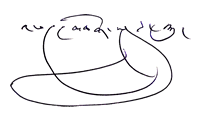
Kyabgön Phakchok Rinpoche
For more information and teachings, please visit:
 
www.phakchokrinpoche.org / www.cglf.org |
|
|
|
|

|
|
|
|
Guru Rinpoche Day, 11th March 2014
|
|
|
|
|
|
|
|
|
|
| Dear Friends Near and Far,
I have been thinking of all of you, my dharma brothers and sisters. In our lives, we need the spiritual path, meaning we need to practice. So please, be happy in whatever it is that you’re doing; don’t always look at others and get caught up in comparison. Mind is very skilled at searching out things to be unhappy about. This being so, I feel it’s extremely important to remind yourself everyday of how fortunate and happy you are.
Today I would like to send you two poems, one about compassion and the other about the negative emotions.
Compassion
Compassion is the essence of human beings.
Compassion can remove our faults.
Compassion is the jewel heart of courageous ones.
Compassion is the root of buddha.
Compassion can improve our worldly lives.
Compassion can benefit ourselves and others.
To practice compassion is very important.
Negative Emotions
Negative emotions are like a light for human beings.
For without negative emotions we do not see our faults.
Negative emotions are like camphor; medicine for some, poison for others.
Negative emotions are the root of benefitting beings.
When you know negative emotions, happiness begins.
When you do not see the negative emotions, suffering begins.
The essence of negative emotions is wisdom.
I wrote these two poems in my simple retreat in USA while looking out of the window one morning. There was a very beautiful purple orchid, seven flowers blooming in one pot, and looking at these flowers I wrote these poems for everybody.
Practitioners should be like sunshine that shines constantly without thinking.
Happiness should be like sunshine that shines without doubt day and night in different places throughout the world.
Practitioners should be diligent like sunshine, which comes at the right time without any delays.
Our wisdom should be like sunshine, unobstructed by any negative emotions, shining throughout the world.
Compassion should be like sunshine benefitting the entire world—different people in different times with their different needs—bringing about happiness.
In this way, sunshine has many different meanings for practitioners.
With aspirations,
Sarva Mangalam (May all be auspicious)

Kyabgön Phakchok Rinpoche
For more information and teachings, please visit:
 
www.phakchokrinpoche.org / www.cglf.org |
|
|
|

|
|
|
|
Guru Rinpoche Day, 9th February 2014
|
|
|
|
|
|
|
|
|
|
|
Dear Friends Near and Far,
What I would like to share with you on this auspicious Guru Rinpoche day is a short contemplation on the importance of balance.
In life, one of the most important things I think is balance, especially as a practitioner but of course in ordinary life as well. Balance what? Yourself, your work, your family and friends and so on. As a spiritual practitioner it is very important to balance all of these things. How to balance them? The most important way I think is to reflect. So firstly, what responsibilities do you have? How are you going to keep them all up to date and not neglect them? Have you informed everyone you need to inform? To balance our different responsibilities in life is very important.
I am sending this from transit in Istanbul airport. With many aspirations for you all.
Sarva Mangalam (May all be auspicious!)

Kyabgön Phakchok Rinpoche
For more information and teachings, please visit:
 
www.phakchokrinpoche.org / www.cglf.org |
|
|
Guru Rinpoche Day Message – 10th January 2014
|
|
|
Dear Friends Near and Far,
On this Guru Rinpoche Day I would like to share three short points:
- Our routine is extremely important. In terms of practice, this means keeping a daily routine of practice. This is the first point.
- Secondly, generating compassion—correct, unmistaken compassion—and balancing it with meditation is very important.
- And thirdly, finding our own faults, but without judging ourselves. This is key, but it is also quite difficult. We have our own problems, difficulties, and in particular bad habits. We have a lot of selfishness and many bad habits. So it is very important to check and become aware of these.
Please try to keep these points in mind and apply them throughout your lives.
With many aspirations,
Sarva Mangalam!
Phakchok Rinpoche |
|
|
Phakchok Rinpoche, P.O. Box 19704, Boudhanath, Kathmandu Boudha, Nepal
|
|
|
Dear Friends from Near and Far,
This month is the tenth Tibetan month (Monkey month), which is also Guru Rinpoche’s month. On this Guru Rinpoche Day in this very auspicious month, I wish all my friends happiness and health and may all your wishes be fulfilled.
I am writing to all of you from Singapore, where today we are doing the Sampa Lhundrub (Spontaneous Fulfilment of Wishes) Feast Offering Puja for the whole day, generating vast accumulation of merit. The past two days, we completed the Lama Norlha (King of Wealth Deities) retreat, which also went very successfully.
During the retreat, I shared with my friends an important tip about success. In order to be truly successful in life, we must have kind and caring mind, and especially a generous mind. Giving is important and when we know how to give, we become successful. Only by giving unconditionally and without any taint of stinginess on our part, will we generate the conditions for success and good fortune. Please keep this in mind, and try to apply this in your daily life.
Take care yourselves and practice diligently. Don’t be lazy. Take care of your health, not only physically but also mentally.
Wishing you every happiness and joy, and with constant aspirations,
Phakchok Rinpoche
Sarva Mangalam!
Guru Rinpoche Day Teaching – 12 November 2013
คำสอน เนื่องในวันรำลึกถึง คุรุปัทมสมภพ ประจำวันที่ 12 พฤษจิกายน 2556
Dear Friends Near and Far,
สวัสดีกัลยาณมิตรทั้งใกล้และไกล,
With warm greetings to you all this wonderful Guru Rinpoche Day of the ninth Tibetan month, today I would like to share four simple and practical points:
เนื่องในวันรำลึกถึงกูรูรินโปเชประจำเดือนที่ 9 ในปฏิทินทิเบตข้าพเจ้าอยากจะแบ่งปันหัวข้อข้างล่างทั้ง 4 ที่ง่ายและนำไปปฏิบัติได้จริงพร้อมทั้งมอบคำทักทายอันอบอุ่นให้กับพวกเธอใน วันพิเศษนี้
1. We all want happiness, and we all want to be free from suffering. This is our most basic wish. And to accomplish this, some of us are studying and practising the dharma, Buddha’s teaching. There are many others who are not interested in the dharma, but either way, we are all seeking the same thing. Regardless of whom we are, one of the most important factors in helping realize this basic wish is cultivating a calm, peaceful mind. This isn’t something that comes straight away though; we need to develop it bit by bit. For this reason, the practice of shamata (calm-abiding) meditation is so very important: practicing shamata meditation focusing on the cycle of the breath every morning for fifteen minutes or so. Through training in this, our mind will gradually calm down and we’ll gain some control over our state of mind. This control will prove to be extremely helpful in quelling our uneasiness when we encounter difficult circumstances and emotions, like stress and frustration.
1. เราทุกคนต้องการความสุขและเราทุกคนต้องการที่จะเป็นอิสระจากความทุกข์ นี่เป็นความปรารถนาระดับพื้นฐานขั้นแรกสุดของเรา และเพื่อให้บรรลุเป้าหมายนี้พวกเราบางคนศึกษาและนำธรรมะ (คำสอนของพระพุทธเจ้า) มาปฏิบัติ และยังมีคนอื่นๆอีกหลายคนที่ไม่ได้สนใจในธรรมะ, อย่างไรก็ตามพวกเราทุกคนล้วนแสวงหาสิ่งเดียวกันดังกล่าวมาข้างต้น ไม่ว่าเราจะเป็นใคร, การเพาะบ่มจิตที่สงบสุขสันติเป็นหนึ่งในปัจจัยที่สำคัญที่สุดในการช่วยให้ ความปรารถนาขั้นพื้นฐานสัมฤทธิ์ผล แต่จิตที่สงบไม่ได้มาจากการแบมือขอหากแต่มันมาจากการเพียรฝึกฝนทีละเล็กทีละ น้อย ด้วยเหตุนี้การปฏิบัติสมถะกรรมฐาน (การภาวนาเพื่อให้จิตเกิดความสงบ) เป็นสิ่งสำคัญมาก: เธออาจจะเริ่มต้นด้วยการปฏิบัติสมถะกรรมฐานแบบเพ่งดูลมหายใจที่เข้าและออก (อานาปานสติ) ทุกเช้าเป็นเวลาประมาณสิบห้านาที ด้วยวิธีนี้จิตของเราก็จะค่อยๆ สงบลงทีละน้อยและเราก็จะการควบคุมอาการของจิตของเราได้ในที่สุด การควบคุมจิตได้จะเป็นประโยชน์อย่างยิ่งในการขจัดปัดเป่าความไม่สบายใจของ เราเมื่อเราประสบกับสถานการณ์ที่ยากลำบากและอารมณ์อันเกี้ยวกราดและเลวร้าย เช่น ความเครียด และความขัดเคืองใจ
2. Secondly, in our quest for happiness we need love and compassion. These are indispensable qualities. We really cannot do without them. If we lack compassion and concern for people and are always getting angry with them, we won’t have a very pleasant time ourselves, and it goes without saying that this will make life difficult for those around us. So we need care and love for our family and friends and a basic empathy and concern for everyone around us, an empathy that allows us to feel connected to all other humans, a very open and caring state of mind. Otherwise, without these qualities it will be very difficult for us to live a truly unhappy and enjoyable life; we will in fact just be creating needless suffering for ourselves.
2. ประการที่สอง ในการแสวงหาความสุขเราจำเป็นที่จะต้องมีความรักและเมตตากรุณาต่อผู้อื่น สองสิ่งนี้เป็นคุณสมบัติที่ขาดไม่ได้จริงๆเราไม่สามารถที่พบความสุขอันแท้ จริงได้โดยปราศจากสองสิ่งนี้ หากเราไร้ซึ่งความเมตตากรุณาและความห่วงใยต่อผู้อื่นและมักจะผูกโกรธผู้อื่น อยู่เสมอเราก็จะไม่มีทางอยู่เป็นสุขได้และมันจะทำให้ผู้คนรอบข้างเป็นทุกข์ ไปด้วยอย่างไม่ต้องสงสัย ดังนั้นเราจึงจำเป็นต้องเอาใจใส่และมอบความรักให้กับครอบครัวและเพื่อนของ เราและรู้จักการเอาใจเขามาใส่ใจเราและมีความห่วงใยต่อผู้คนรอบข้าง, การเข้าใจความรู้สึกของผู้อื่นช่วยให้เรารู้สึกผูกพันกับคนเหล่านั้น, มันเป็นการสภาวะจิตที่เปิดกว้างและเต็มไปด้วยความเอาใจใส่ต่อผู้อื่น ในทางตรงกันข้ามหากปราศจากคุณสมบัติทั้งสองนี้มันจะเป็นไปได้ยากที่เราจะใช้ ชีวิตอย่างเป็นสุขและสนุกสนานอย่างแท้จริงได้; มันกลับจะสร้างความทุกข์ทรมานให้กับตัวเองโดยไม่รู้ตัว
3. Thirdly, we need a good balance. If you are a spiritual person then practice the dharma (or any other religion or spiritual path you follow) well and genuinely, and at the same time look after your family and friends. Take good care of your kind parents, grandparents, your siblings, your entire family and all your friends and acquaintances. Also do whatever you can to help those in need through charity and in different ways. This balance I feel is very important. To accomplish this balance, learning and practising the dharma can really help. Even if you are not inclined to follow a spiritual path, it can be very helpful to learn some simple meditation, and of course, whoever we are, to practice charity and care for our families.
3. ประการที่สามเราจำเป็นต้องรักษาสมดุลในชีวิตให้ดี หากเธอเป็นนักปฏิบัติก็จงนำธรรมะมาเจริญภาวนาอย่างจริงๆจังๆและบ่อยๆ (หรือทำตามคำสอนในศาสนาหรือนิกายอื่นๆที่เธอนับถือ) และก็ดูแลครอบครัวและเพื่อนของเธอไปพร้อมๆกัน ดูแลพ่อแม่, ปู่ย่าตายาย, พี่น้อง, สมาชิกในครอบครัวทั้งหมดที่ดีต่อเธอเสมอมา, รวมทั้งเพื่อนๆทุกคน, และคนรู้จักของคุณ นอกจากนี้ก็ทำบุญสุนทานกับผู้ตกทุกข์ได้ยากหรือบำเพ็ญตัวให้เป็นประโยชน์ใน รูปแบบต่างๆที่แตกต่างกันไป ข้าพรู้สึกเลยว่าการรักษาสมดุลนี้เป็นสิ่งสำคัญมาก เพื่อให้เข้าสู่สภาวะสมดุลการใฝ่ศึกษาและปฏิบัติธรรมสามารถช่วยเธอได้จริงๆ แม้ว่าเธอไม่ได้คิดที่จะเอาจริงเอาจังในทางธรรม, มันย่อมมีประโยชน์มากที่จะเรียนรู้การเจริญภาวนาแบบง่ายๆ, และแน่นอนไม่เธอจะเป็นใครก็ตามมันย่อมเป็นประโยชน์ไม่ยิ่งหย่อนไปกว่ากันหาก เรารู้จักทำบุญทำกุศลและเอาใจใส่ดูแลครอบครัวของเราเอง
4. Fourthly, and lastly, we need to be sincere and honest with ourselves. At the same time, we also need self-confidence. By ‚’sincere and honest’ I mean that we need to be able to see and acknowledge our own faults and flaws. But when we see them, we should not fall into self-judgement; rather we should move towards positive change. Just acknowledge your shortcomings, and then do whatever you can to improve. If we slip into self-judgement we can end up making ourselves really miserable and lonely with low self-esteem and many different kinds of problems. So we need to be wary of that and work on reducing our self-judgement, as well as our judgement of others.
4. สุดท้ายประการที่สี่ เราจะต้องมีความจริงใจและความซื่อสัตย์กับตัวเอง ในขณะเดียวกันเราก็ต้องมีความเชื่อมั่นในตนเอง โดย “ความจริงใจและความซื่อสัตย์กับตัวเอง” ในที่นี้หมายถึงเราต้องสามารถสังเกตุเห็นและยอมรับความผิดพลาดและข้อบกพร่อง ของเราเอง แต่เมื่อเราเห็นสิ่งไม่ดีเหล่านั้นของเราเอง เราไม่ควรที่จะเลยเถิดไปถึงขนาดจมอยู่กับการเพ่งโทษตัวเอง; หากแต่เราควรจะปรับปรุงแก้ไขสิ่งไม่ดีเหล่านั้นเพื่อพัฒนาตัวเองต่อไป เพียงแค่ยอมรับข้อบกพร่องของเธอเองและจากนั้นให้พยายามทำทุกสิ่งทุกอย่างที่ เธอจะทำได้เพื่อที่จะแก้ไขสิ่งไม่ดีเหล่านั้นของเธอ หากเราหลงจมอยู่กับการเพ่งโทษตัวเองเราก็จะทำให้ตัวเองรู้สึกสลดหดหู่, โดดเดี่ยวเดียวดาย, ขาดความมั่นใจในตนเองและมีปัญหาอื่นๆตามมาอีกมากมาย ดังนั้นเราจึงจำเป็นที่จะต้องระมัดระวังในสิ่งเหล่านี้และเพียรที่จะลดการ เพ่งโทษทั้งต่อตัวเองและต่อผู้อื่น
These four points I feel are very important factors, whether we be Buddhists or not, in cultivating true happiness and well-being so we can live our various lives with joy, ease, and dignity.
ไม่ว่าเราจะเป็นพุทธศาสนิกชนหรือไม่ข้าพเจ้ารู้สึกว่าหัวข้อทั้ง 4 ข้างต้นนั้นเป็นปัจจัยที่สำคัญมากในการเพาะบ่มความสุขที่แท้จริงและความเป็น อยู่ที่ดีเพื่อให้เราสามารถดำรงชีวิตในแบบต่างๆของเราด้วยความร่าเริง, ผ่อนคลาย, และอย่างสง่างาม
Wishing you every happiness and joy, and with constant aspirations,
ข้าพเจ้าปรารถนาให้เธอมีความสุขและร่าเริงและเปี่ยมไปด้วยแรงบันดาลใจที่ไม่มีวันเสื่อมคลาย,
Phakchok Rinpoche
วัชราจารย์ พักชก รินโปเช
Sarva Mangalam!
ขอมงคลทั้งปวงจงมีแด่ท่าน
@Credit Thai Translator Team
ภาษาไทยกดที่นี่
Dear Friends Near and Far,
I hope you are all well. I am writing to you today (one day late) from Hong Kong where I have been teaching and holding several pujas. All of the programmes have gone very well. In particular we completed 100,000 Sampa Lhundrub feast offerings which was really excellent, and throughout I have been keeping all of you in my thoughts and prayers. It is really important that we practice the buddhadharma, and to do this we need a certain motivation: our motivation should be to attain enlightenment for the benefit of all sentient beings. But for many of us, the strength of this motivation is not enough. What we need to do then is remember the immediate benefits of the dharma, the effects we experience directly in our own lives. For example, how the dharma helps reduce our negative emotions; how through meditation we can increase our compassion and become more good-hearted so that even if others do us harm we don’t react with anger, but respond with patience and compassion.
A lot of people these days though don’t have enough time for the dharma. But even so, you can still make use of the little bit of time you do have here and there to apply the dharma.
Here and there, remember the Buddha’s teaching, apply it in your life, apply meditation in the short moments you have free throughout the day. This is so extremely important. If we fail to do this, and let our life slip by occupied solely with work, work, and more work life will have become quite meaningless and empty. Our lives will pass by and before we know it life will be over and we will have accomplished nothing truly meaningful. Time is ticking by, day by day, so we must practice the dharma now. But to do this we need discipline; discipline to make time and apply the dharma in our lives. This is something we need to do for ourselves; no one else can do it for us. The dharma is so important. Please keep this in mind.
In a few days, when I am back in Nepal I will send another short message via video. Until then, many prayers and aspirations that we can all foster the discipline to make our lives meaningful,
Sarva Mangalam,
Phakchok Rinpoche
สวัสดี กัลยาณมิตร ทั้งอยู่ใกล้และไกล
ข้าพเจ้าหวังว่าทุกท่านจะมีสุขภาพที่แข็งแรง ข้าพเจ้าเขียนถึงทุกท่านในวันรำลึกถึงคุรุปัทมสัมภาวะเดือนนี้(ช้าไป 1 วัน)
จากประเทศฮ่องกงที่ซึ่งข้าพเจ้าได้ให้คำสอนและประกอบพิธีบูชาหลายอย่าง โปรแกรมทั้งหมดก็ผ่านไปได้ดี โดยเฉพาะอย่างยิ่งพวกเราได้ประกอบพิธีถวายเครื่องบูชา (feast offerings) แด่องค์ ซัมปา ลุนดรุป (Sampa Lhundrub) จบครบ 100,000 ชุด ซึ่งผ่านไปได้อย่างงดงามจริงๆ และตลอดเวลาการประกอบพิธีข้าพเจ้าได้นึกถึงพวกคุณทุกคนอยู่ในใจของข้าพเจ้าและในคำอธิษฐาน มันเป็นสิ่งสำคัญยิ่งที่เราได้ปฏิบัติธรรม และจะทำเช่นนี้เราต้องมีแรงจูงใจบางอย่างซึ่งก็คือ แรงจูงใจที่จะบรรลุถึงสัมมาสัมโพธิญาณเพื่อยังประโยชน์ของสรรพชีวิตทั้งหมด แต่สำหรับพวกเราส่วนใหญ่ แรงจูงใจของพวกเรายังไม่แข็งแกร่งพอ สิ่งที่เราต้องทำก็คือการตระหนักถึงประโยชน์จากธรรมะที่เห็นผลได้ในทันทีและเป็นผลลัพธ์ที่ผ่านประสบการณ์ตรงในชีวิตประจำวันของเราเอง ตัวอย่างเช่น ธรรมะจะช่วยลดกิเลส ของเราได้อย่างไร, เราสามารถเพิ่มความเมตตาของเราและส่งเสริมจิตใจที่งดงามผ่านการเจริญสติภาวนา ได้อย่างไรจนถึงระดับที่ว่าแม้คนอื่นทำร้ายเราไม่ได้ เราก็ไม่ได้กระทำกลับไปความโกรธแต่กลับใช้ความอดทนและความเมตตาในการตอบโต้แทน พวกเราจำนวนมากในวันนี้แม้จะไม่ได้มีเวลาเพียงพอสำหรับการปฏิบัติธรรม พวกเราก็สามารถที่จะประยุกต์ใช้ธรรมะนิดๆหน่อยๆในเวลาอันน้อยนิดที่คุณพอจะมี คุณควรรำลึกถึงคำสอนของพระพุทธเจ้า ใช้มันในชีวิตประจำวันของคุณ เจริญสติภาวนาในช่วงเวลาพักสั้นๆที่คุณมีตลอดทั้งวัน นี่คือสิ่งที่สำคัญมาก ถ้าเราไม่ปฏิบัติตามคำแนะนำข้างต้น ปล่อยปละละเลยให้การงานที่เพิ่มขึ้นมาครอบครองเวลาของเราแต่เพียงผู้เดียว ชีวิตของเราก็จะค่อนข้างไร้ความหมายและว่างเปล่า ชีวิตของเราผ่านไปทุกวันแต่กว่าที่เราจะรู้ตัว
ชีวิตเราก็อาจจะถึงจุดจบเสียแล้วและเราก็จะไม่ประสบกับสิ่งที่มีคุณค่าแท้จริงอะไรเลยในชาตินี้ เวลาได้เดินผ่านไปทุกวินาที วันแล้ววันเล่า ดังนั้นพวกเราจะต้องเริ่มปฏิบัติธรรมในตอนนี้ แต่การที่จะทำเช่นนี้ได้เราจำเป็นต้องมีระเบียบวินัย วินัยที่จะหาในการปฏิบัติเวลาและใช้ธรรมะในชีวิตประจำของเรา นี่คือสิ่ง ที่เราต้องทำเพื่อตัวเราเอง ไม่มีใครสามารถทำแทนเราได้ ธรรมะเป็นสิ่งสำคัญดังนั้น โปรดตระหนักถึงเหล่านี้
ในอีกไม่กี่วัน เมื่อข้าพเจ้ากลับไปถึงประเทศเนปาล ข้าพเจ้าจะส่งข้อความสั้นๆอีกอันหนึ่งผ่านทางวิดีโอ ระหว่างนี้ขออธิษฐานและส่งแรงบันดาลใจให้เราทุกคนสามารถสร้างระเบียบวินัยที่เข้มแข็งขึ้นเพื่อที่จะทำให้ชีวิตของเรามีความหมาย
ขอมงคลทั้งปวงจงมีแด่ท่าน,
วัชรจารย์พักชก รินโปเช
@ Credit Thai Translator team
|
Dear Friends Near and Far,
I am writing to you on this Guru Rinpoche day from Nepal where I am overlooking the blessed Buddha’s stupa at Boudhanath. Due to some personal things, I have cancelled a few of my planned trips and am unexpectedly back here in Nepal. Thinking today of myself, having been wandering around from country to country for the last two months, and inspired by a teaching by Patrul Rinpoche that I am reading I would like to share with you one of the most important points for the path―the importance of aspiration.
We may be very lazy, busy, and lost in our lives, but nevertheless we should keep our motivation, aspiration, and interest in enlightenment and keep on reminding ourselves to aspire that everything we do may not go astray from enlightenment, but lead towards enlightenment. Many people act with a different motivation and with different reasons, not with enlightenment in mind, but in terms of the path the most important point is mind. This being so, if your aspiration, intention, and motivation go astray from enlightenment then you have really gone astray from the dharma. On the other hand, if you can maintain the aspiration for enlightenment day to day and do everything in your daily life with this as your motivation, then although you may be astray from the application of the dharma you are not completely astray from the path. One of the sutras tells how Buddha Shakyamuni counseled a king saying, “Oh King, whether you are walking, sitting, talking, whatever you may do, never forget the aspiration for enlightenment. When you have this mind, you will never go astray from the path.”
With constant aspirations for your all,
Sarva Mangalam,
Phakchok Rinpoche
|
www.phakchokrinpoche.org
www.cglf.org




